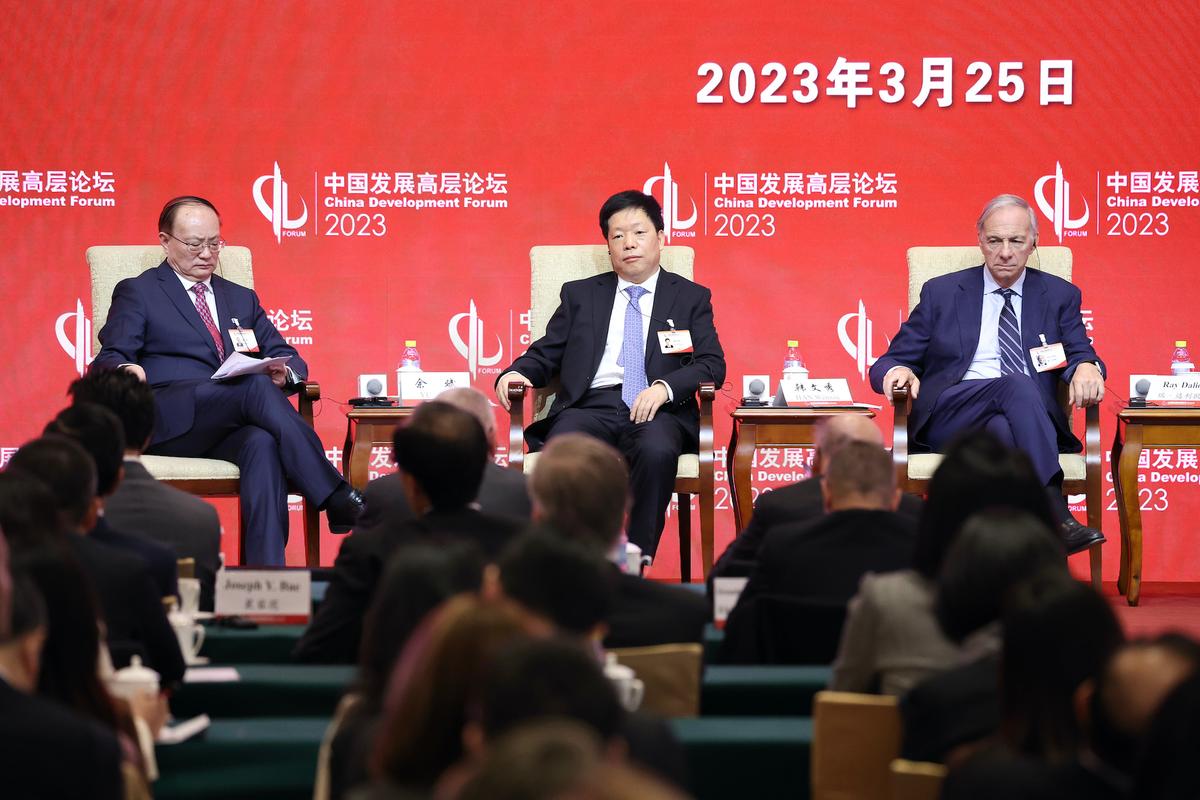A growing number of Chinese laws that enable “exit bans” has heightened fears of a more hostile environment for foreign companies operating in China.
Experts say that Beijing’s tactics go against its professed desire to bolster business confidence and foreign investment in the country and may trigger an accelerated exodus of foreign companies.
The Chinese regime has long banned dissidents from leaving the country, but in the years since Xi Jinping came to power (2012), the authorities have passed more laws to allow such bans and have applied them more broadly.
The report contends that the bans affect at least “tens of thousands” of Chinese nationals and “millions” if counting ethnicity-based cases for people such as the Uyghurs.
Foreign nationals are also increasingly targeted or threatened with exit restrictions, even if they are not suspected criminals.
‘Search, Seize, and Detain’
With the “complex, vague, ambiguous and expansive” local laws, “any government body for any reason may issue an exit ban,” the Safeguard Defenders report said.“Deliberately vague wording in the Civil Procedure Law means that individuals not even connected to the dispute can be trapped in China,” the report said.
“Irish businessman Richard O’Halloran was barred from leaving China for more than three years (2019 to 2022) because the company he worked for was involved in a commercial dispute, even though he wasn’t even working for the firm when the dispute began.”
There are also expatriates who have fallen victim to Beijing’s hostage diplomacy. The report said the Chinese Communist Party (CCP) uses this as a “tit-for-tat” retaliation against foreign governments or a tactic to extract concessions.
“Often, the action is more serious, such as arbitrary detention, or sometimes exit bans are used in the initial stages. For several years now, the US State Department’s travel advisory on China has warned that Beijing uses exit bans to ‘gain bargaining leverage over foreign governments,” it said.
“The targeting of some foreign journalists falls under this category,” it added.
“Even ordinary market research or collecting information on competitors may fall into the scope of the anti-espionage law in the future. The atmosphere of anxiety has spread among enterprises. The heads of enterprises in China are worried that the company may be searched, and computers and mobile phones may be confiscated,” Kamp wrote.

Arbitrary Charges
Even before the new laws, foreign firms have been targeted by the CCP.The Chinese authorities reportedly confiscated the company staff’s computers and phones, while the raid’s purpose remains unclear.
The New York-based firm told Reuters on March 24 that it “has not received any official legal notice regarding a case against the company and has requested that the authorities release its employees.”
Days later, Mao Ning, spokesperson of China’s Foreign Ministry, told reporters that Mintz Group “is suspected of illegal business operations.”
However, the move is widely perceived as Beijing’s retaliatory tactic against Washington amid intensified U.S.-China rivalry.
The CCP is not only cracking down on U.S. companies in China.
Trust Issues
Since lifting the country’s draconian COVID-19 measures, senior Chinese officials have frequently expressed a strong desire to bolster business confidence and encourage investment and growth.Speaking at the annual meeting of the China Development Forum on March 26, Vice Premier Ding Xuexiang pledged to continue to expand market access, optimize the business environment across the board, and implement national treatment for foreign-invested enterprises, among other things.

Fang Qi, a U.K.-based senior financial consultant, told The Epoch Times on May 7 that Beijing’s heightened use of exit bans appears to go against its professed desire to bolster business confidence and foreign investment in the country.
“The Chinese Communist Party is often contradictory in its actions. It would usually say one thing but do another. In this case, it needs foreign companies’ capital, but on the other hand, it does not trust them. This is why there are essentially no new foreign companies entering China," Fang said.
“As geopolitical conflicts intensify and foreign companies’ profits in China plummet, [companies] are reluctant to choose China as a place to invest or operate. It wouldn’t make sense either from a business point of view or from a risk point of view.”
He added that even for foreign companies already in China, many would be forced to de-couple, some manufacturing industries would move their supply chains out of China, and only companies with a certain scale of operation in China may stay as they have invested too much.






